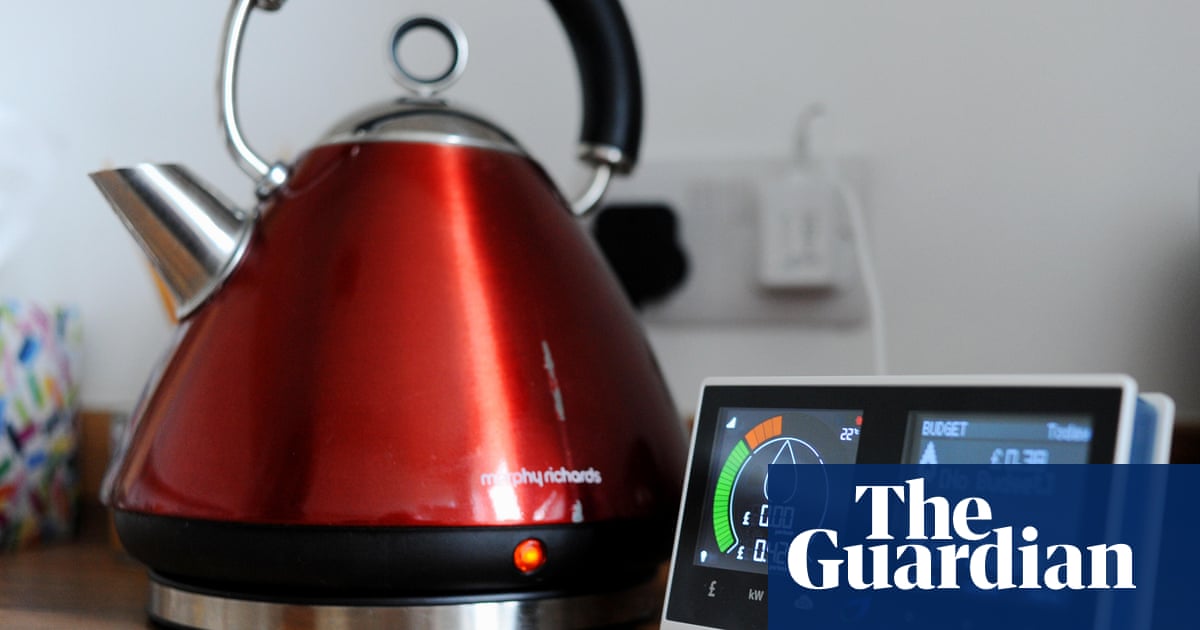
Every household in Britain should have some of their energy bill paid for by the government to help protect the poorest families, according to a report.
Setting out radical plans to tackle the energy crisis, the New Economics Foundation thinktank (NEF) said a system of “free basic energy” could be launched as early as next year to replace the consumer price cap for gas and electricity bills.
Households could have their energy use paid for up to a certain level, helping the least well-off stay warm as Russia’s war in Ukraine drives up wholesale energy prices.
Usage above the limit would then be charged at a higher price than usual to incentivise energy efficiency and lower consumption – helping support net-zero goals.
Industry leaders and thinktanks are floating ideas for the new prime minister to consider as soaring energy prices drive up inflation to the highest level in 40 years.
Households are bracing for a surge in living costs after Ofgem, the energy regulator, confirmed an 80% rise in the price cap from October to £3,549 a year.
Forecasters estimate this figure could rise to more than £6,000 from April 2023 – more than 500% higher than pre-Covid levels – if current wholesale energy prices are sustained.
Setting out plans to help the poorest families with soaring bills and to dampen the effects of a looming recession, the NEF said a three-pronged approach was required, including reforms to benefits and one-off payments for all households.
The leftwing thinktank said a limit of 8,000 kilowatt hours per year free of gas and 2,000 kWh of electricity could be funded by the government.
Based on current estimates for prices in April 2023, this would mean just under £4,600 in free energy per household.
On top of this, the NEF said the government’s windfall tax on oil and gas producers could be expanded to raise £22bn, with the proceeds used to pay for a new “cost of living allowance” worth £750 for every household.
Finally, the thinktank says a new “energy element” could be introduced into universal credit and legacy benefits worth £1,000 for a single person and £1,650 for a couple, helping the poorest households meet the cost of higher bills above the free energy entitlement.
The thinktank said the overall cost of the package would be about £46.2bn, arguing this would be cheaper than Labour’s energy price freeze, while providing better targeted support than that promised by Liz Truss or Rishi Sunak in the Conservative leadership contest.
Labour has pledged to freeze the energy price cap at the level set in April – just under £2,000 per year – saying this would cost £29bn. However, the NEF warned that the plan could not be sustained beyond the coming winter and, when coupled with rising wholesale energy prices, would cost well over £100bn per year.
Truss’s plan to reverse the rise in national insurance would cost more than £10bn, while significantly skewing support to higher-income families. In contrast, the NEF said its plans would increase net incomes on average for everyone outside the 20% highest-income families.
Alfie Stirling, the director of research and chief economist at the NEF, said an emergency freeze in the price cap was needed to buy time, but that it was not viable for more than a few months.
“We need a sustainable solution that combines lower energy bills, incentives and support to increase energy efficiency and a permanently stronger income safety net,” he said.
“NEF’s proposed package of support meets this need: free basic energy for all paid for by higher energy prices for those that use more; a permanent new energy element in universal credit; and a new means of paying all families in the UK quickly in times of crisis.”












